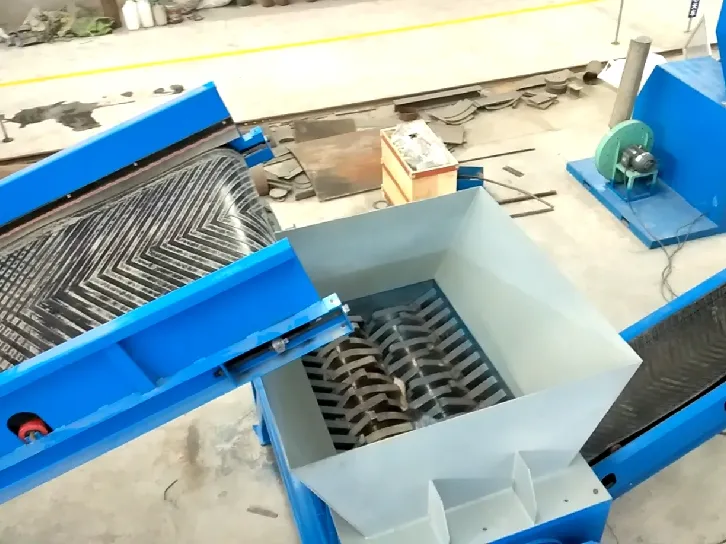
10 月 . 07, 2024 15:36 Back to list
The Importance of Aluminium Scrap Recycling Plants
Aluminium is one of the most widely used metals globally, valued for its lightweight, durability, and corrosion resistance. As industries continue to grow and develop, the demand for aluminium has surged, resulting in an increasing amount of aluminium scrap generated from various sources. To address this issue and promote sustainable practices, aluminium scrap recycling plants play a pivotal role in the circular economy.
Aluminium scrap recycling plants are facilities specifically designed to process used aluminium products, transforming them into raw materials that can be reused in manufacturing. The recycling process begins with the collection of scrap aluminium from various sources, including discarded consumer products, construction materials, and industrial waste. This scrap is then sorted, cleaned, and shredded to prepare it for melting.
One of the key benefits of recycling aluminium is the significant reduction in energy consumption. Producing new aluminium from raw bauxite ore requires approximately 95% more energy than recycling existing aluminium. By recycling scrap aluminium, plants can utilize only a fraction of the energy needed for primary production, leading to substantial cost savings and a reduction in greenhouse gas emissions. This energy efficiency makes aluminium recycling an environmentally friendly option, aligning with global efforts to combat climate change.
Moreover, the recycling of aluminium contributes to resource conservation. The availability of bauxite ore is finite, and extracting it can lead to environmental degradation, including deforestation and habitat destruction. Recycling helps to alleviate the pressure on natural resources by ensuring that valuable materials remain in circulation. In fact, nearly 75% of all aluminium produced since the beginning of the aluminium industry is still in use today, thanks to effective recycling practices.

Aluminium scrap recycling plants also create jobs and stimulate economic growth. The recycling industry has become a significant source of employment, providing jobs in sorting, processing, and transporting scrap materials. As demand for recycled aluminium increases, these plants will continue to offer employment opportunities and contribute to local economies.
In addition to environmental and economic benefits, aluminium recycling plays a vital role in reducing waste. With landfills reaching capacity and the impact of waste on the environment becoming increasingly apparent, recycling serves as an essential solution to manage waste effectively. By diverting aluminium scrap from landfills, recycling plants reduce the volume of waste produced and promote a more sustainable approach to waste management.
To maximize the benefits of aluminium recycling, governments and businesses must work together to encourage responsible consumption and enhance recycling infrastructure. Public awareness campaigns can educate consumers on the importance of recycling and the proper disposal of aluminium products. Additionally, investments in recycling technology and facilities will ensure that aluminium scrap is efficiently processed and reused.
In conclusion, aluminium scrap recycling plants are integral to fostering a sustainable future. They not only reduce energy consumption and conserve resources but also create jobs and manage waste effectively. Emphasizing the importance of recycling, such facilities play a crucial role in supporting the circular economy, ensuring that valuable materials are repurposed rather than discarded. As society continues to strive for more sustainable practices, the role of aluminium recycling will only become more critical.
Latest news
Unveiling the Power of Eddy Current Separator
NewsSep.25,2024
Transform Your Home Recyclin:home metal shredder
NewsSep.25,2024
The Future of Waste Management with Recycling Line Picker
NewsSep.25,2024
The Benefits of a Metal Recycling Plant
NewsSep.25,2024
Revolutionize Material Separation with Onwang Technology
NewsSep.25,2024
Innovative Waste Management: Unveiling the MSW Sorting Plant
NewsSep.25,2024